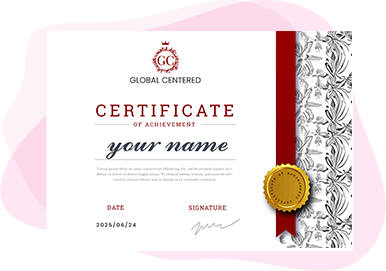GMMRE-Mineral Resource Estimation and Reporting Standards 02
Mar/2025
English
A course by
Description
Introduction
This intermediate-level course builds upon fundamental resource estimation knowledge, focusing on advanced estimation methods, classification frameworks, and regulatory compliance. Participants will gain practical insights into grade estimation techniques, data validation, and reporting best practices.
Date
Day | Time | Price | Country |
|---|---|---|---|
Mon – Wed | 8:00 – 10:00 | $5/hrs | Turkey |
Tue – Thu | 18:00 – 19:00 | $5/hrs | Turkey |
Wed – Fri | 20:00 – 21:00 | $5/hrs | Turkey |
Sat – Sun | 18:00 – 19:00 20:00 – 21:00 | $8/hrs | Turkey |
This Training Course Will Highlight
- Advanced resource estimation techniques (geostatistics, interpolation methods, kriging).
- Statistical analysis and data validation in mineral resource estimation.
- Integration of resource estimation with mine planning and economic evaluation.
- Application of international reporting standards and compliance challenges.
- Risk assessment in mineral resource estimation and reporting.
Objectives
- Understand the fundamentals of mineral resource estimation.
- Learn about classification systems (Measured, Indicated, Inferred resources).
- Gain knowledge of reporting standards and compliance requirements.
- Develop an understanding of sampling techniques and QA/QC in resource estimation.
- Recognize the importance of transparent and responsible mineral reporting.
Training Methodology
- Instructor-led lectures on mineral resource estimation principles.
- Practical demonstrations of sample collection and validation.
- Basic exercises in resource estimation calculations.
- Discussions on case studies from real-world mining projects.
- Interactive Q&A sessions on mineral reporting compliance.
- Case Study: Resource estimation process for a phosphate, gold, or bauxite deposit.
Organizational Impact
- Enhances compliance with international reporting standards.
- Improves resource estimation accuracy for exploration projects.
- Strengthens technical understanding of mineral classification.
- Supports better decision-making in mine planning.
- Reduces exploration risks through effective resource evaluation.
Personal Impact
- Develops fundamental skills in resource estimation and classification.
- Improves knowledge of regulatory compliance in mineral reporting.
- Strengthens understanding of sample integrity and QA/QC.
- Expands career opportunities in mineral exploration and mining.
- Builds confidence in interpreting and reporting resource estimates.
Who Should Attend?
- Entry-level geologists and mining engineers.
- Junior exploration staff in mining companies.
- Resource estimation analysts and junior mine planners.
- Government mining and geological survey personnel.
- Undergraduate geology and mining students.
- Technical staff involved in mineral reporting compliance.
- Professionals transitioning into the field of mineral resource evaluation.
Course Outline
Day 1
Advanced Sampling Techniques and Data Validation- Exploration vs. production sampling – differences and best practices.
- Reducing errors in drill hole logging and sample collection.
- Geochemical assay verification and laboratory selection criteria.
- Case studies on data validation and QA/QC implementation.
- Best practices in geochemical analysis and mineral identification.
- Statistical evaluation of QA/QC results.
Day 2
Grade Estimation and Statistical Methods- Understanding grade variability in ore deposits.
- Introduction to statistical methods (histograms, variograms, regression analysis).
- Interpolation techniques – nearest neighbor, inverse distance weighting (IDW), and kriging.
- Understanding and managing outliers in geostatistical analysis.
- Role of compositing and declustering in resource estimation.
- Kriging application for gold deposit estimation.
Day 3
3D Resource Modeling and Block Modeling Techniques- Introduction to 3D geological modeling for resource estimation.
- Block modeling – principles, structure, and applications.
- Creating and interpreting grade-tonnage curves.
- Cut-off grades and their impact on resource classification.
- Geological domaining and its role in mineral resource modeling.
- Developing a block model for a phosphate deposit.
Day 4
Mineral Resource Classification and Risk Assessment- JORC, NI 43-101, and SAMREC resource classification criteria.
- Assessing confidence levels in mineral resource estimates.
- Economic considerations in mineral resource classification.
- Uncertainty and risk management in resource estimation.
- Common pitfalls and best practices in mineral resource classification.
- Risk assessment in resource estimation for a bauxite project.
Day 5
Reporting Standards, Compliance, and Investor Confidence- Compliance and legal requirements in mineral resource reporting.
- Understanding Competent Person (QP) responsibilities.
- Ensuring transparency and ethics in mineral resource reporting.
- Best practices for effective communication of resource estimates.
- Challenges and trends in modern mineral resource estimation.
Cancellation policy
no refund is accepted
Certificate


Free
Skill level Intermediate
100% positive reviews
Language: English
Assessments: Self
Step Into a World of Knowledge and Growth
Imagine a place where learning is not just about theory
Courses you might be interested in
Introduction This advanced-level training course is designed for senior geologists, resource geologists, and mining engineers who require in-depth knowledge of resource estimation methodologies, advanced geostatistical techniques, and regulatory compliance. The...
-
0 Lessons
Free
Introduction This course provides a fundamental understanding of mineral resource estimation and reporting standards used in the mining industry. Participants will learn how resources are classified, estimated, and reported in...
-
0 Lessons
Free
Free

